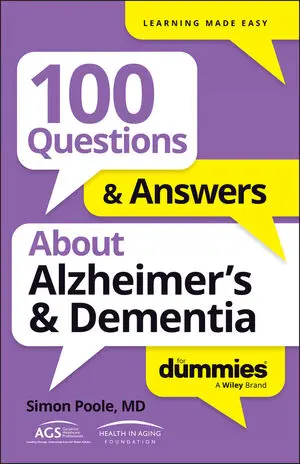To arrive at a diagnosis of dementia in general and specifically AD, doctors must evaluate multiple aspects of daily functioning through screening questions. In addition to an interview of the patient and family members/caregiver, mental status screening tests are conducted. Multiple different mental status examinations are available to screen for dementia/AD. Here are the most common:
- VAMC/SLUMS and MMSE: Although somewhat different, these two screening tests — the Veteran's Affairs Medical Center-St. Louis University Mental Status test and the Mini-Mental Status Exam, also referred to as the Folstein test, are meant to look for cognitive impairment. Both have a total possible score of 30 points. They evaluate orientation, memory, visuospatial skills, attention, calculation, and the ability to follow simple commands. Scoring is as follows:
- Normal: 27–30
- Mild cognitive impairment: 21–26
- Moderate cognitive impairment: 11–20
- Severe cognitive impairment: 0–10
- BIMS: The Brief Interview of Mental Status (BIMS) is a quick screening test that focuses on repetition, time orientation, and recall.
- Mini-Cog: The Mini-Cog is a simple two-part test that asks a person to complete two tasks:
- Remember three common everyday objects and recite them from memory after the second task.
- Draw a clock face and label it with all 12 numbers and put the hands on the clock showing a specified time. The ability to draw and label a clock face tests memory, visuospatial skills, drawing, and sequencing of numbers. These skills decline progressively in Alzheimer's patients, so drawing a clock is a helpful tool in diagnosing and staging AD.
Furthermore, your loved one's doctor performs these screening tests to assess the following types of skills:
- Self-care skills: These skills include the ability to get dressed, prepare and eat simple meals, move about safely without risk of falling, bathe, and perform other hygienic routines such as brushing teeth, driving, cleaning house, taking prescribed medications, and using household equipment and supplies appropriately.
- Communication skills: These skills include a person's ability to make himself understood either verbally or in writing, and the ability to read and understand simple written instructions and comprehend and carry out oral instructions consistently.
- Simple math skills: This category includes the ability to make proper change, write checks, pay bills, tell time, balance a checkbook, and manage personal finances.






